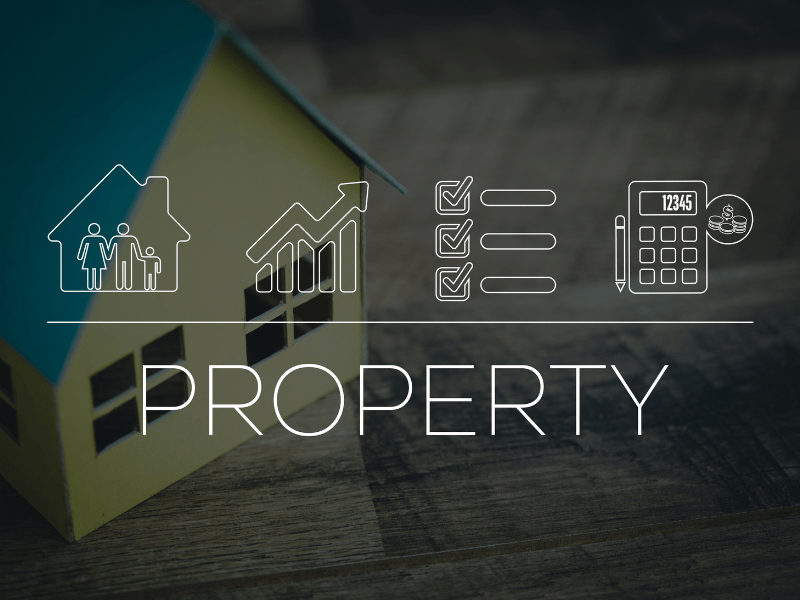Your Guide to Northern Virginia Property Management
Are you looking for an easy Property Management guide to help you understand what questions you should be asking a prospective Professional Property Manager? Well first, let’s review some of the reasons why you may be considering this in the first place. Perhaps you’re a homeowner who is moving out of state, but you plan to return to your current home at some point in the future. Maybe you’ve been called overseas for a tour of duty and want to ensure your home is well taken care of while you are gone. Or possibly you’re planning to upgrade and purchase a new property but keep your current one as an investment. Or you might be an investor who simply needs help managing your portfolio.
In a nutshell, property management in Northern Virginia is a specialized area, and for those wishing to maximize the yield from their rental property, it’s essential to understand what a manager can do. WJD Management has been providing top-notch property management services in Northern Virginia since 1985 – so if you’re looking for reliable information about your real estate investment, we can help.
Whatever your reason may be for possibly engaging a Professional Property Manager, this is clearly an important decision and there is a lot to think about! Property managers can be a terrific asset or a real detriment if you don’t choose one wisely. Use our quick hit list to help you consider everything you need to do to make an informed decision about hiring a Professional Property Manager. You can also check out our other detailed guides such as “Why Hire a Property Manager” and “How to Find the Best Property Manager for You.”
What is Property Management?
Property management is the process of overseeing and managing a real estate investment. Maintaining a real estate investment requires tending to every detail, from locating occupants and obtaining rent payments to repairing damages and ensuring conformity with local regulations. A property manager is responsible for maintaining the day-to-day operations of an investment property.
Hiring a professional property manager can provide numerous benefits for both landlords and tenants alike. For landlords, employing a professional property manager can free up their time by taking away the need to be constantly present in order to effectively manage their investments. Tenants benefit from having someone who understands how leasing works and how to professionally handle any issues that might arise with the rental unit or landlord, which could help avoid costly disputes down the line. Below is a quick overview of what property managers do.

What does a Property Manager do?
- Locates qualified tenants.
- Negotiates leases.
- Resolves tenant complaints.
- Handles tenant violations.
- Maintains the property.
- Ensures that the property and the lease both comply with the law.
- Manages expenses and collects rent.
- Does the required IRS income reporting.
- Performs regular property inspections.
- Does everything you will have to do if you try to manage the home yourself!
When to Hire a Property Manager
- You own multiple properties and are unable to manager all of them yourself.
- You live far away from your rental property.
- You don’t have any experience managing a rental property.
- You can afford the monthly management fee (typically 8%).
- You don’t have enough time to manage the property by yourself.
- You are willing to delegate this task to a professional.
How to Find the Right Property Manager
- Ask friends and colleagues for referrals.
- Research property managers online.
- Check licenses and certifications.
- Look for experience and stability of staff.
- Ask lots of questions!
Top 10 Questions to Ask a Property Manager
- How much experience do you have managing properties?
- How quickly can you rent my property?
- How do you establish rental prices?
- How will you market/advertise my property?
- How do you screen tenants?
- What are your leasing and management fees?
- How often do you do property inspections?
- How do you handle tenant delinquency? Late payments?
- What are my landlord responsibilities?
- Can I cancel my contract with you if I’m unsatisfied?
What to Look for in a Property Management Contract
Maximizing returns on your investment is essential for successful navigation through the choppy seas of over 100 companies offering property management services in Northern Virginia. Think seamless leasing services, quick maintenance requests resolution, and optimal rent collection.

Services and Fees
If you own real estate in Northern Virginia, it’s critical to comprehend the particulars of property management fees. But don’t worry. We’ve got your back. Let’s delve into what these fees typically include.
The average property management fee in Northern Virginia falls around 8-12% of the monthly rent collected from tenants. This percentage can be adjusted depending on the services offered and company chosen, giving us a good basis for comparison.
A crucial part of this fee goes towards tenant acquisition – advertising rental properties, screening potential renters, drafting lease agreements, and setting up online portals for payments are just some examples.
Your Responsibilities as Property Owner
The contract should clearly define what your obligations are as a landlord. This usually entails things such as a maintenance fund, timely mortgage payments, property taxes, and insurance payments.
Tenant Acquisition: More Than Just Finding Renters
Tenant acquisition isn’t as simple as putting up an ad and hoping someone bites; there’s much more to it than that.
A substantial chunk of the management service involves marketing strategies aimed at attracting prospective tenants who are not only interested in renting but can also afford your asking price above market average rates.
Rent Collection: Ensuring Smooth Financial Flow
Another important component covered by these fees is rent collection. Property managers streamline this process through digital platforms or online portal systems where residents can easily make their rental payments each month without hassle — ensuring smooth financial flow between parties involved.
Maintenance Requests Handling: Keeping Tenants Happy & Properties In Shape
It is important to ask the process for addressing maintenance requests swiftly and efficiently. Do all repairs get done promptly with minimal disruption to occupants’ daily lives. As an owner it is worthwhile to look for tenant satisfaction and overall property upkeep.
Key Services Offered by Property Management Companies
A key to the successful operation of a rental property is efficient and effective management. This role often falls to professional property management companies. But what services do they offer? Let’s explore.

The Role of Property Maintenance
Firstly, any decent property manager knows that regular maintenance can save money in the long run. It’s not just about fixing problems as they arise; it’s about preventing them from happening at all. They ensure properties are well-maintained, addressing tenant complaints promptly and coordinating with trusted contractors for repairs.
In addition to this preventive approach, they also handle more immediate concerns like plumbing issues or electrical faults quickly and professionally. The ultimate goal here is to keep your tenants happy because a satisfied tenant is less likely to move out.
Tenant Screening: A Critical Service
Property managers play an essential role in screening prospective tenants – think background checks, credit reports, and employment verification – ensuring only reliable individuals inhabit your investment properties.
This isn’t merely paperwork either; good property managers meet potential renters face-to-face whenever possible. In doing so, they get an invaluable sense of who these people are beyond mere facts on paper—crucial insight when determining if someone will be respectful towards your property or cause undue wear-and-tear over time.
Rent Collection & Lease Management Made Easy
Rent collection can be tricky business but it doesn’t have to be with skilled professionals handling it. They streamline rent collection processes using online portals which make payment easy for tenants while offering you clear financial reporting. Bonus: They also deal with any rent-related issues, so you don’t have to.
Beyond just collecting rent, property managers are experts at lease management. From setting the right rental price in line with market averages to handling complicated legal matters such as eviction services or drawing up airtight lease agreements; they’ve got it all covered.
What to know about Property Management in Northern Virginia
Property management companies serve as a vital link between property owners and tenants. They’re like guardians, caring for properties on behalf of the owners.
Their responsibilities are diverse, spanning from handling tenant issues to enforcing community rules. These professionals have an in-depth understanding of landlord-tenant laws which helps them mediate any arising disputes efficiently. Navigating the complex and ever-changing Northern Virginia real estate market requires an understanding of current trends to be successful. Let’s examine the Fair Housing Laws applicable to Fairfax County real estate transactions in order to ensure adherence.
Fair Housing Laws in Virginia
Fair Housing regulations in Virginia are put in place to shield people from bias due to ethnicity, hue, faith, ancestry, gender identity/expression, impairment or family status. These laws apply to all types of housing transactions including rental properties and the sale of real estate.
Overview of Fair Housing Laws in Virginia:
The Commonwealth of Virginia has adopted several fair housing laws that prohibit discrimination in any type of housing transaction. The most comprehensive law is the Virginia Fair Housing Law (VFHL), which applies to both public and private housing providers throughout the state. VFHL prohibits discrimination in housing transactions based on race, color, religion, national origin, sex, disability or familial status and requires landlords to provide reasonable accommodations for disabled persons if requested. It also requires landlords to make reasonable accommodations for disabled persons if requested by a tenant. The legislation also safeguards occupants from being ousted without a justifiable reason or appropriate legal procedure, as well as forbids proprietors from asking for higher rents on the basis of these safeguarded categories.
Fair housing laws in Virginia are essential for protecting the rights of tenants and landlords, as well as promoting fair practices. It is imperative to have a complete comprehension of the fair housing laws in Virginia prior to participating in any property management dealings within the state.
The Virginia Residential Landlord and Tenant Act (VRLTA)
The VRLTA is a broad set of regulations that define the relationship between landlords and tenants in Virginia. The VRLTA sets out the rights, responsibilities, and remedies for both parties in residential rental agreements.
The VRLTA is a comprehensive system of regulations that dictate the relationship between landlords and tenants in Virginia. This act outlines the rights and responsibilities of both parties involved in residential rental agreements as well as remedies for violations. It covers topics such as security deposits, rent increases, repairs and maintenance obligations, eviction procedures, late fees and more.
Both landlords and tenants are beholden to the rights enshrined in the VRLTA. Landlords must provide habitations equipped with all necessary services such as heat/air conditioning, running water, hot water, electricity and sanitation facilities – while also adhering to any applicable local building codes or ordinances concerning health safety standards. On their part, tenants have a duty to pay rent on time without prompting; obey all terms of the lease agreement (e.g., occupancy limits) ; keep their unit tidy and secure at all times – once again conforming to any relevant local building codes or ordinances related with health safety norms.
The VRLTA is a crucial statute to be cognizant of in relation to managing real estate in Northern Virginia, detailing the prerogatives and obligations of both proprietors and lessees. To ensure success with a rental property, one should conduct a thorough rental market analysis before investing in real estate.
Rental Market Analysis
The Rental Market Analysis is a technique employed by real estate investors and property managers to establish the most profitable rental fees for their holdings. It involves gathering data on comparable properties in the area, analyzing that data, and using it to set realistic rental rates that will maximize profits while still attracting tenants.
Once this initial research has been completed, it is important to analyze all relevant economic indicators, including unemployment levels and consumer spending trends which could affect demand for rentals within your particular region or market segment. After collecting and assessing all necessary data points, it is time to set realistic rent prices based upon supply and demand dynamics; this will enable you to generate maximum returns without driving away potential tenants due to overly high costs.
If you are ready to rent your home, feel free to take advantage of our exclusive FREE Rental Market Analysis. Finally, don’t forget to connect with us on social media! Follow us on Facebook, Twitter, LinkedIn, Instagram, and Pinterest for tips, ideas and updates.


